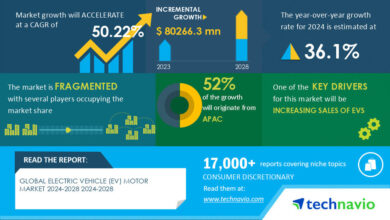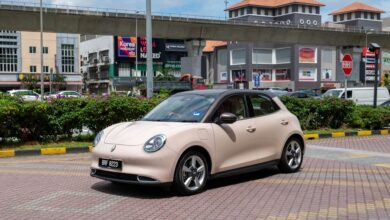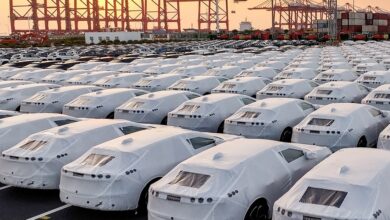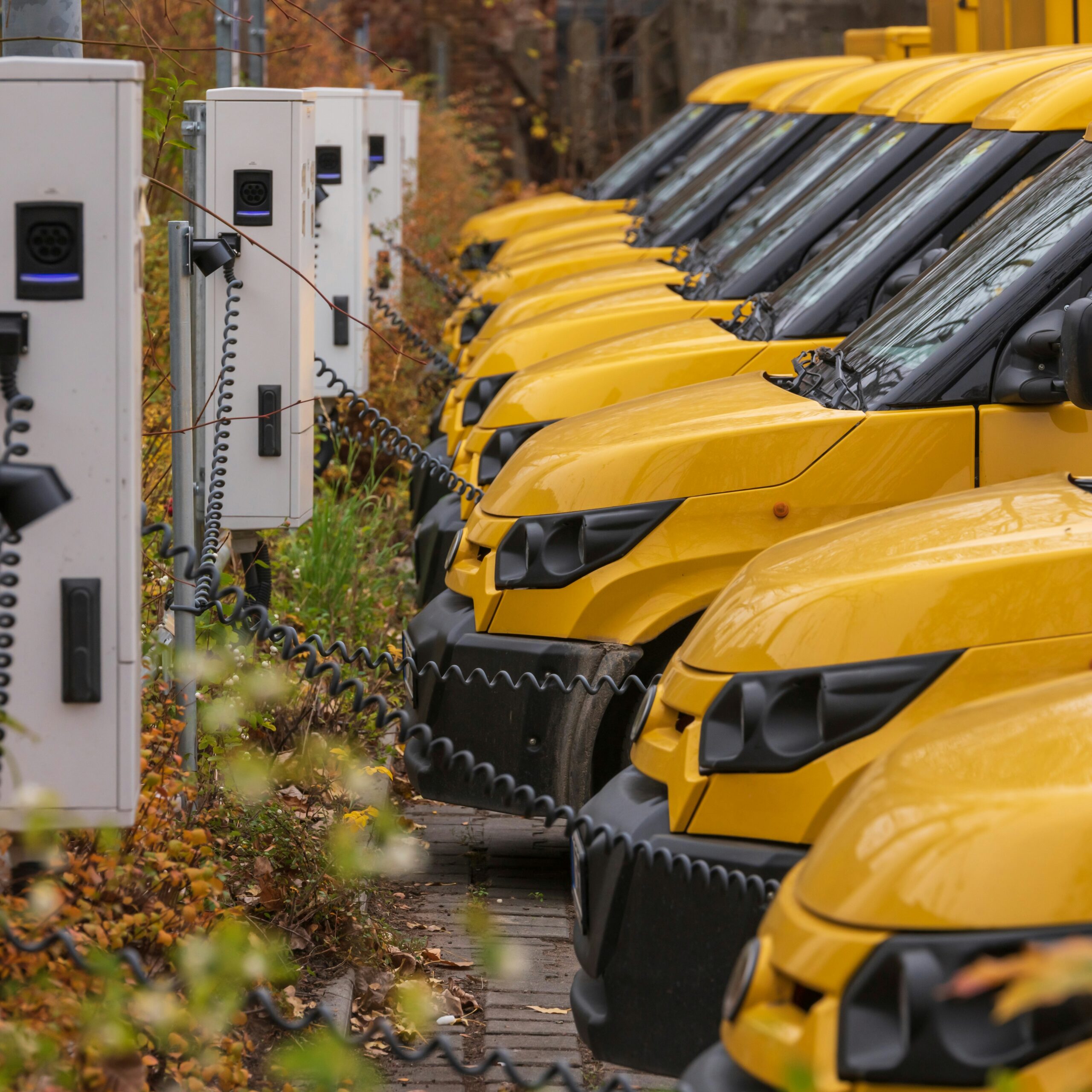EV makers get repreive in US tax credit rules
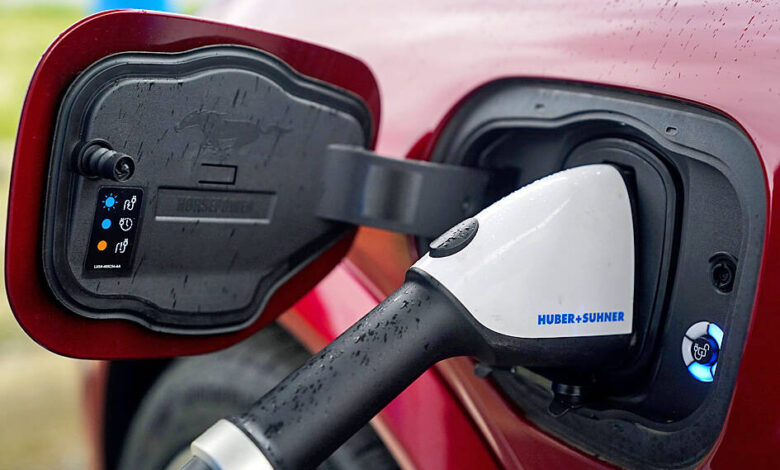
The US government gave vehicle manufacturers a reprieve on Friday when finalizing electric vehicle (EV) tax credit rules, by letting vehicles that contain Chinese graphite qualify for the consumer credits through 2026.
The confirmation came as the US Department of the Treasury and Internal Revenue Service published final rules on the clean vehicle provisions under US President Joe Biden’s landmark climate action plan, the Inflation Reduction Act.
Washington has been seeking to reduce its burgeoning EV industry’s reliance on China.
Photo: AP
NEW RULES
Starting this year, new rules came into effect restricting Chinese content in batteries if they were to qualify for EV tax credits of up to US$7,500.
From next year, a qualifying clean vehicle cannot contain critical minerals from businesses controlled by a “foreign entity of concern” such as China, Russia or North Korea.
However, in the final rules, the Biden administration also gave vehicle manufacturers another two years to improve sourcing of materials such as graphite that are considered tough to trace to their origin.
“The final rules being issued today strengthen and secure supply chains and provide certainty for manufacturers and taxpayers,” the department said.
John Bozzella, president of the Alliance for Automotive Innovation, a Washington lobby representing vehicle manufacturers, said the rules “appear to recognize the realities of the global supply chain.”
He said that they provide “temporary flexibility in terms of where the critical minerals in EV batteries can be sourced.”
“That’s helpful as more automotive supply chains and battery production is localized to the US and our allies,” he added.
CRITICISM
However, US House of Representatives Select Committee on the Chinese Communist Party chairman John Moolenaar said that the rule deepens the country’s reliance on China, urging the Biden administration to “reverse course.”
US Senator Joe Manchin, the Democratic chairman of the US Senate Energy and Natural Resources Committee, said that through the new rule, the Biden administration “is effectively endorsing ‘made in China.’”
Despite the tax credits, sales of EVs grew only 3.3 percent to about 270,000 from January through March, far below the 47 percent growth that fueled record sales and a 7.6 percent market share last year. The slowdown, led by Tesla Inc, confirms vehicle manufacturers’ fears that they moved too quickly to pursue EV buyers.
The EV share of total US sales fell to 7.15 percent in the first quarter, according to Motorintelligence.com.
Comments will be moderated. Keep comments relevant to the article. Remarks containing abusive and obscene language, personal attacks of any kind or promotion will be removed and the user banned. Final decision will be at the discretion of the Taipei Times.
